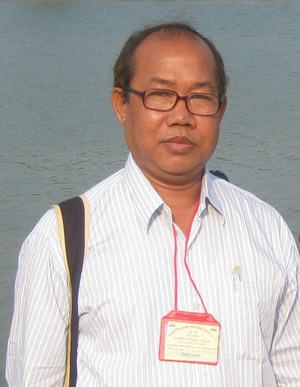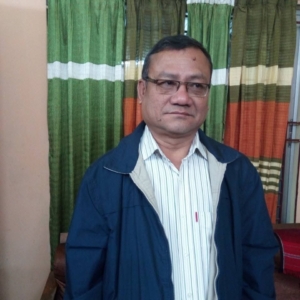Mrittika Chakma
![]()

Mrittika Chakma
(1959– )
Mrittika Chakma, a living legend in Chakma literature, was born on January 12, 1959, in Mugchhari of Bandukbhanga, Rangamati Hill District. In 1960, the construction of the Kaptai Dam displaced thousands of people in Rangamati—including the poet’s family. As a result, they were forced to leave Bandukbhanga and relocate to Logang under Panchhari Thana in Khagrachari district. Mrittika Chakma spent his childhood deeply connected to the land and people of Logang.
He began his education at Logang Government Primary School and completed his academic journey with a B.A. (Honours) and M.A. in Bengali Language and Literature from the University of Chittagong. He served as a literature teacher at Moanoghar Residential School from.
He is one of the key policymakers of Jum Aesthetic Council (JAC), a prominent cultural organization in the Chittagong Hill Tracts. Closely associated with JAC, and through his own initiatives, he remains deeply engaged in the advancement of Jumma literature and culture.
His childhood experiences in Logang are rich with memories, many of which are reflected in his poem “Ganger Nang Logang” (The Shore of the Logang River). Mrittika Chakma is not only a poet but also a playwright and short story writer. His poetry collections include Digbon, Seretun, Mon Porani, and Ekhono Pahar Kande (The Hills Still Weep), among others.
Several of his notable plays have been staged over the years, including Debongsi Ahdhor Kala Chaba, Gojen, Mohendror Bon Bhajh, Ekjur Mannek, Joggyo, Hokkanir Dhanpana, Bhoot, and Chitra Nodi Pare (On the Banks of the Chitra River). In addition, many of his poems remain unpublished and several plays are yet to be performed.

